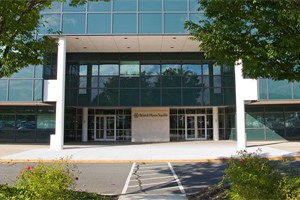 Bristol-Myers Squibb’s new cancer drug Opdivo has dramatically improved one-year survival rates in a trial involving patients with advanced-stage, squamous cell non-small cell lung cancer (NSCLC).
Bristol-Myers Squibb’s new cancer drug Opdivo has dramatically improved one-year survival rates in a trial involving patients with advanced-stage, squamous cell non-small cell lung cancer (NSCLC).
The phase II trial showed that – based on 11 months of follow-up – 41% of patients treated with biweekly Opdivo (nivolumab) should still be alive after 12 months, which compares favourably with historical survival rates of between 5% and 18%.
ISI Group analyst Mark Schoenenbaum – who had set a 20% improvement in survival as a benchmark for success in the trial – described the results as “very, very good”, particularly as the patients in the study had advanced disease that had progressed despite at least two prior systemic therapies.
BMS now says it expects to complete the rolling Biologics License Application (BLA) for squamous cell NSCLC in the US – first filed in April – by the end of the year.
Opdivo has already been approved as a treatment for melanoma in Japan – where it is sold by Ono Pharmaceutical – and is on track for approval for melanoma in the US in early 2015. It has also been filed for both NSCLC and melanoma in the EU.
Rival PD-1 inhibitor Keytruda (pembrolizumab) from Merck & Co is already on the market in the US as a treatment for the skin cancer melanoma – and seems to be gaining considerable traction in the marketplace – but is currently in a phase 1b trial in NSCLC, giving BMS a lead for the lung cancer indication.
The two immunotherapies have been the most anticipated cancer drugs in the last couple of years, and the robust clinical data coming through has done nothing to dampen that enthusiasm.
Both BMS and Merck are also investing heavily in trials looking at additional indications for their PD-1 inhibitors, as well as combinations with other drugs. For its part, BMS is conducting trials of the drug in renal cell carcinoma (RCC) and a host of other cancer types, and has collaborations with Janssen, Celgene and others for combination studies.
The rivalry between the two PD-1 inhibitor developers has however spilled over into the courts, with BMS filing a lawsuit against Merck in September alleging patent infringement.
For the two pharma giants there is a lot at stake. Both Opdivo and Keytruda are tipped to make several billion dollars apiece at their peak, and the total market for PD-1 inhibitors in cancer has been predicted to be worth tens of billions.




